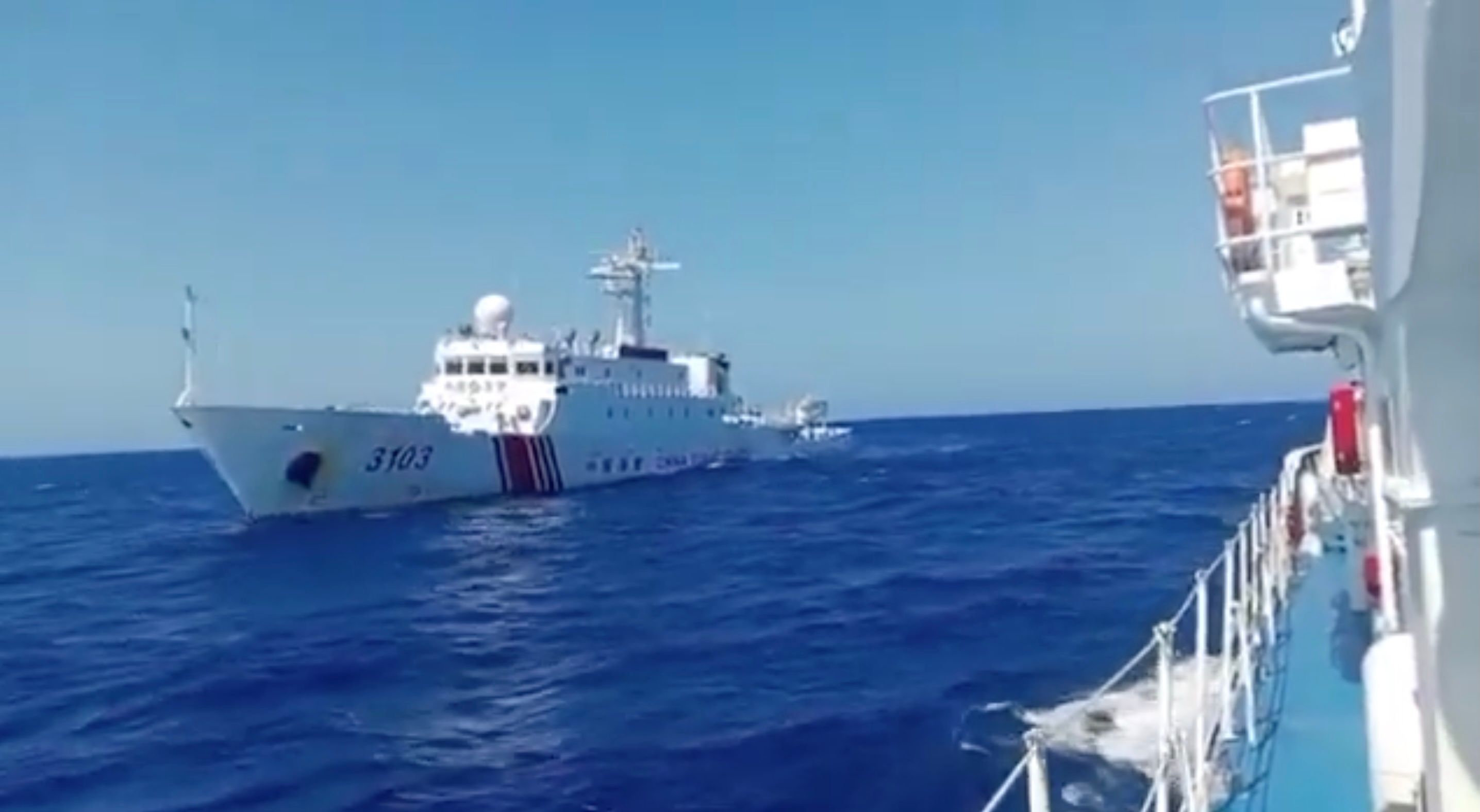
A Philippine Coast Guard (PCG) ship continued to prove its mettle as it single-handedly kept three Chinese vessels from getting closer to the coast of Zambales on Sunday, Jan. 26.
BRP Cabra, which measures 44 meters long, prevented China Coast Guard (CCG) ship “3103” from advancing, effectively containing it at a distance of 90 to 100 nautical miles away from the country’s exclusive economic zone (EEZ).
China’s “monster ship” or CCG-5901 and CCG-3103 were also spotted “a few nautical miles away” from CCG-3103, serving as support vessels, according to Commodore Jay Tarriela, PCG spokesperson for West Philippine Sea (WPS).
“Our continued presence serves as a clear demonstration of our commitment to upholding our sovereign rights and a steadfast stance against any violations of international law, all while prioritizing a peaceful approach,” he said.
The official said the PCG remains committed to challenging the illegal presence of the CCG vessels. He added the PCG would not allow China to “alter the status quo by encroaching closer to the coastline of Zambales.”
China, on the other hand, had said the CCG was conducting lawful operations in areas it claims as part of its internal waters.
Meanwhile, the PCG defended the publication of a comic book that counters China’s alleged disinformation and misinformation strategy in the WPS.
The comic book, “Mga Kuwento ni Teacher Jun: Ating Alamin ang Kasaysayan, Kaganapan, at Katotohanan Tungkol sa West Philippine Sea,” was launched by the PCG in partnership with the National Security Council (NSC) and Department of Education (DepEd) at the National Library of the Philippines last Jan. 24.
The comic book provides an accessible and engaging resource for readers to learn more about the WPS. It included chapters that cover essential topics such as maritime zones, the significance of the 2016 arbitral award, combating fake news and misinformation, and the national government's efforts to defend the WPS among others.
“The comic book primarily addresses how the United Nations Convention on the Law of the Sea (UNCLOS) defines the maritime zones of a coastal state. This foundational knowledge is essential for Filipinos to avoid becoming victims of fake news and misinformation, particularly claims from a country like China, which is over 500 nautical miles away, asserting sovereignty over specific maritime features,” Tarriela said.
He was responding to a report published by Chinese state media Global Times criticizing the release of the comic book. The report said the comic book “aimed at promoting anti-China sentiment, particularly targeting young students through a manipulative, brainwashing approach.”
National Security Adviser (NSA) Eduardo Año underscored the critical importance of transparency as a powerful tool against misinformation, particularly concerning issues in the WPS.
He commended the comic book for being a vital educational tool that simplifies complex issues surrounding the WPS, presenting them in a relatable and engaging manner through vibrant illustrations.
“This comic book will serve as a bridge to greater awareness and a deeper understanding of the nation’s rights and sovereignty,” he said.
Fifty copies of the comic book were turned over to selected public schools. In addition, 1,500 copies of the book were donated to the National Library of the Philippines which will be made available to library users and distributed to selected affiliated public libraries nationwide.